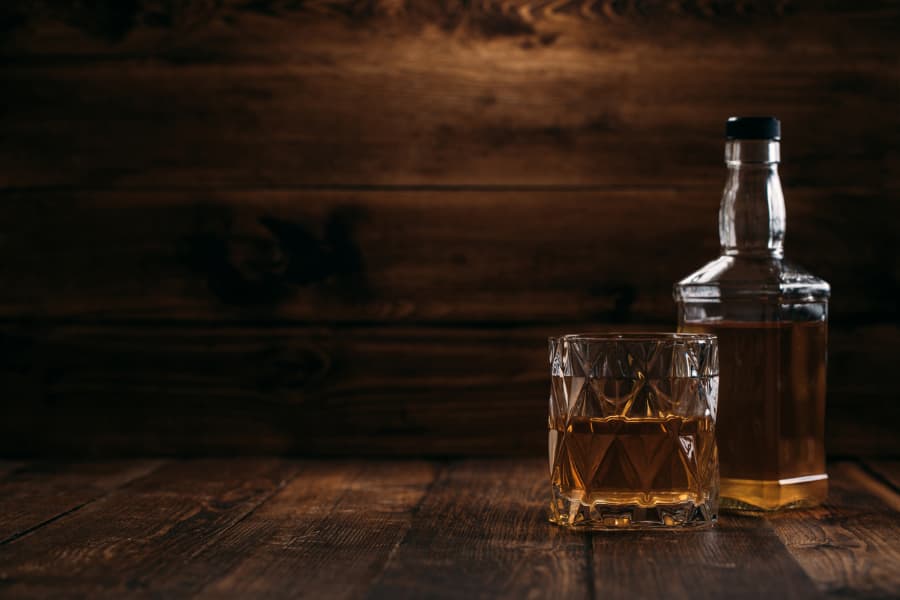
It’s easy to see why Scotch and other whiskeys are so often mistaken for one another. These amber-brown liquors can look virtually identical when poured over ice in a glass. Sometimes, they smell similar and provide comparable taste experiences. Scotch is technically a subtype of whiskey. However, there are some key differences when comparing Scotch vs. whiskey of other varieties.
Columbia Distributing is a trusted beverage distributor in the Pacific Northwest, serving businesses that serve and sell alcohol and other drinks in Oregon and Washington. Here, our team explains the distinctions between Scotch and other alcoholic beverages.
What Is Whiskey?
Whiskey is a type of distilled spirit made from various grains and aged in wooden casks or barrels. The spelling of this liquor varies depending on your part of the world. It’s spelled “whiskey” in the United States and Ireland, while Scotland, Japan, and Canada use “whisky.”
There are several types of whiskey – each made with a different grain for varying flavors and sensations. Just a few include:
- Bourbon (made primarily from corn)
- Rye whiskey (made primarily from rye)
- Scotch (made primarily from malted barley)
Generally, whiskey is produced by mashing, fermenting, distilling, and aging specific grain combinations. Each type of whiskey must contain a certain percentage of a grain. For instance, to be considered Tennessee whiskey, the liquor must be comprised of 51% corn at the minimum.
What Is Scotch?
Scotch is a whisky produced in Scotland, adhering to the Scotch Whisky Association’s strict rules and regulations. To qualify as Scotch, the liquor must be:
- Fermented, distilled, aged, and bottled within Scotland’s borders
- Aged for at least three years
- Distilled to a minimum of 190-proof (95% ABV) before aging
- Bottled at 80-proof (40% ABV) or higher – never lower
- Made with primarily malted barley (and other grains for blended Scotch), yeast, water, and caramel coloring – nothing more
- Display an age statement to verify the Scotch’s age within the barrel
Scotch’s distinctive taste profile consists of smoky flavors, which makes sense given its composition of malted barley. During the fermentation process, the malted barley is heated over open flames. Many types of Scotch whisky are aged for 12 years or more. Two of the most popular types of Scotch include:
Single Malt Scotch
This type of Scotch whisky is produced solely from malted barley and no other grains, like corn or rye. After distilling, it is aged in copper pot stills.
Blended Scotch
Combining malted barley with whisky made from other grains, blended Scotch is highly popular amongst today’s consumers.
Another distinction comes down to the spelling of its name. Scotch whisky can never be spelled as “Scotch whiskey” – it’s a direct contradiction because the added “e” in “whiskey” is not used in Scotland. Spelling aside, you can expect a smokier flavor when choosing Scotch over most other types of whiskies.
Learn More About Scotch vs. Whiskey by Trying Our Products
When it comes to differences in taste, sometimes the best way to learn about Scotch vs. whiskey is by sampling some of each! At Columbia Distributing, we serve businesses throughout Oregon and Washington with beverage distribution services. Our selection includes many types of whiskey, Scotch, and other alcoholic choices, as well as non-alcoholic beverages – all from top brands. For more information, contact us today.